
Through the Bhagavad-gita, Krishna reveals how his teachings are utterly different from exclusivism. Here are four ways to understand his astonishing inclusivity:
- Acknowledges multiple paths for spiritual growth: Though he unequivocally recommends bhakti-yoga (18.66), he also asserts that multiple, opposite-seeming paths such as karma-yoga and jnana-yoga are spiritually beneficial (05.02). And he emphasizes that following these paths is unfailingly auspicious (06.40).
- Accommodates seekers who don’t agree with his recommendation: Though he recommends engaging in the world with spiritual consciousness (18.06), he appreciates as wise those who seek spiritual reality by the opposite path of disengaging from the world (18.03). Even for those who are spiritually uninformed and materially infatuated, he recommends level-appropriate engagements and disapproves the disturbing of their minds (03.26)
- Validates multiple conceptions of ultimate reality: Though he unambiguously establishes himself as the personal divinity who is the highest manifestation of the ultimate reality (07.07, 10.08, 14.27), he simultaneously deems multiple other conceptions of the ultimate reality valid on the long journey of all souls toward spiritual evolution (09.15). He even acknowledges that those with non-personal conceptions of divinity may also reach the ultimate reality in a manifestation suitable for them (12.05, 18.55).
- Allows, even aids, the worship of other gods: Though he declares that the enlightened devote themselves wholeheartedly to him (07.19, 09.13-14, 15.19), he simultaneously sets up a system of surrogate divinities, known as devatas, who are cosmic administrators and can receive worship from those who aren’t ready to worship him (03.11-13). Not only that, he provides the necessary faith to those who gravitate toward the worship of devatas (07.21) and he even empowers the devatas to fulfill the prayers of their worshipers without demanding any credit or worship for himself (07.22).
One-sentence summary:
Krishna’s inclusivity is seen in his fourfold acceptance: of multiple paths for spiritual growth; of seekers who don’t follow his recommendations; of multiple conceptions of the ultimate reality; and of the worship of other gods.
Think it over:
- How is Krishna inclusive toward various seekers?
- How is Krishna’s inclusivity seen in the worship of other gods?
- Which aspect of Krishna’s inclusivity inspires you the most? Why?
***
03.26: So as not to disrupt the minds of ignorant men attached to the fruitive results of prescribed duties, a learned person should not induce them to stop work. Rather, by working in the spirit of devotion, he should engage them in all sorts of activities [for the gradual development of Krishna consciousness].
To know more about this verse, please click on the image

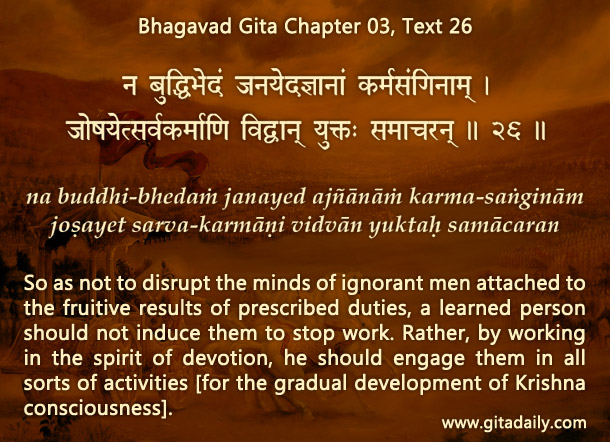



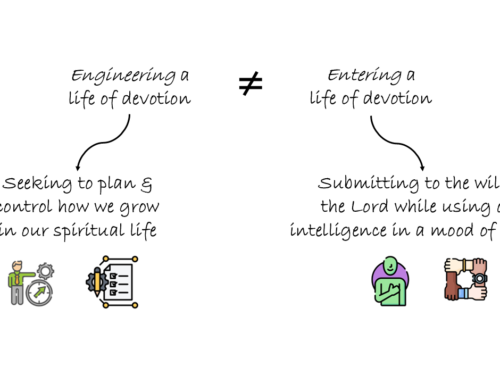



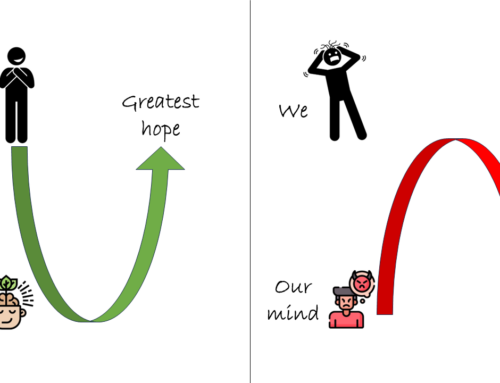

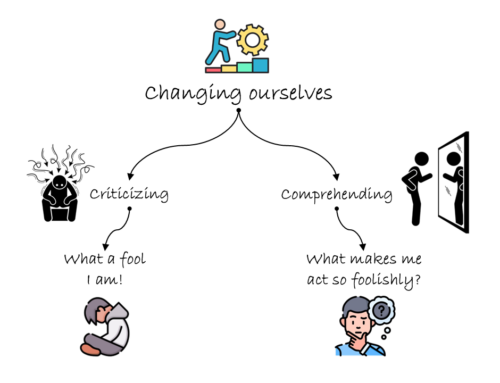
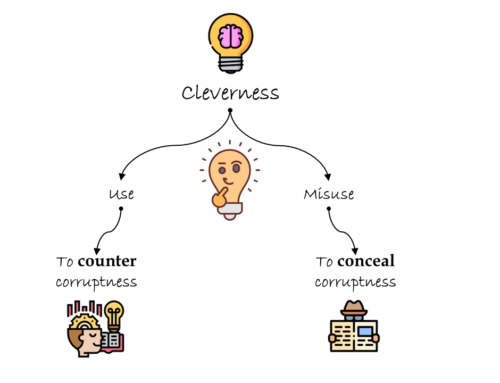

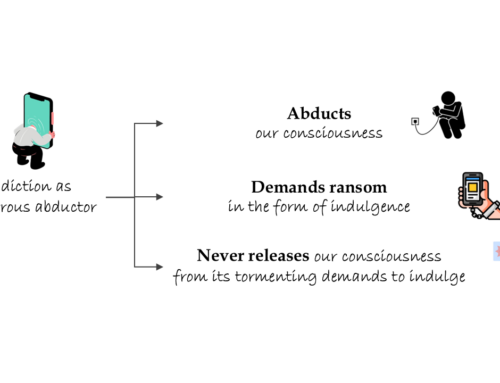
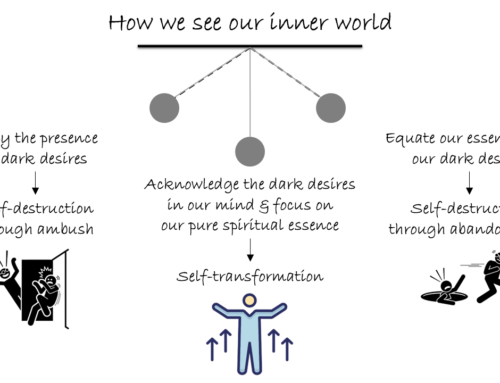
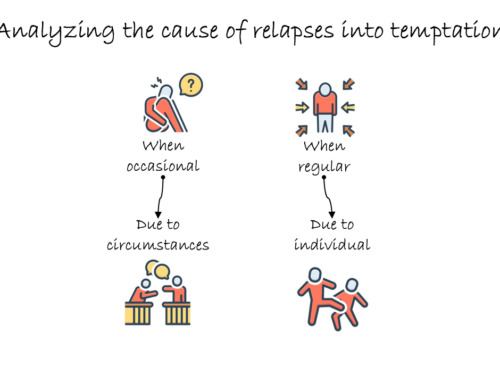

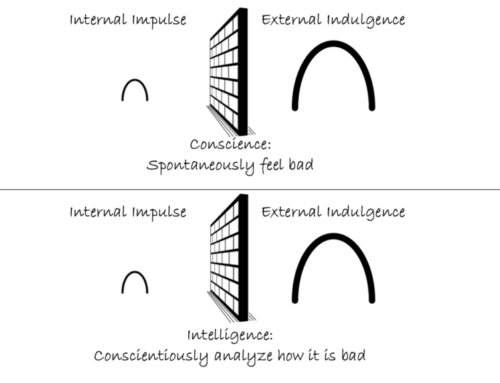
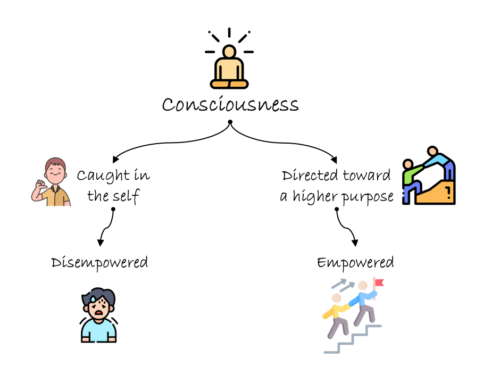
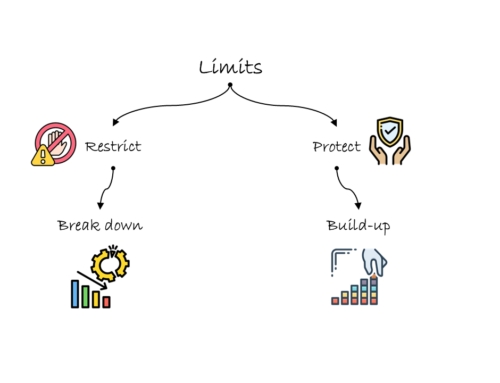
Leave A Comment